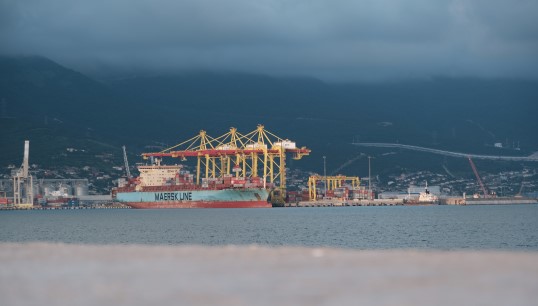- Topics
- Campaigning
- Careers
- Colleges
- Community
- Education and training
- Environment
- Equality
- Federation
- General secretary message
- Government
- Health and safety
- History
- Industrial
- International
- Law
- Members at work
- Nautilus news
- Nautilus partnerships
- Netherlands
- Open days
- Opinion
- Organising
- Switzerland
- Technology
- Ukraine
- United Kingdom
- Welfare

Economics advisors in Denmark have proposed rolling back the nation’s tonnage tax regime – prompting a cautious response from trade unions in the country. Andrew Draper reports.
Danish unions are being guarded in their response to a suggestion by independent government economics advisors that tonnage tax should be scrapped. Lars Have Hansen, head of the MMF engineers' union, said overhauling a tax regime is no mean feat and should not be undertaken lightly.
Tonnage tax is an EU-approved system that is used in most European and international maritime countries. It was brought in by the Danish government in 2001 and is designed to ensure a stable level of taxation for shipowners during fluctuating shipping cycles. It means that taxation is not based on profits; instead, shipowners that are enrolled in the scheme instead paying a fixed tax amount per net tonne at their disposal. This allows them to plan long-term investments in ships.
Critics say companies like Maersk do not pay their fair share of tax to society, as the tax they would otherwise pay on profits would be much higher.
Mr Have Hansen said: 'If you're going to look at something with a view to changing it, then you need to do it thoroughly.' The union's priority is ensuring their members have jobs at sea. The system is complex so there should be no rush to change it, he said.
The panel of independent economists, known as the 'wisemen', made the recommendation to scrap tonnage tax in their latest report on the state of the Danish economy for the Danish Economic Councils, which bring together the wisemen, unions, employers, the Danish Central Bank, the Danish government, and independent economic experts.
In subsequent comments the senior wiseman, Carl-Johan Dalgaard, said the wisemen favoured rolling back the tax advantages given to shipowners in the form of tonnage tax because it distorts the economy.
'At the heart of it all, it's usually a bad idea to give favourable tax treatment to certain industries over others from an economy point of view,' he said. 'That's because selective tax favourability creates a situation in which from a private financial point of view it's profitable to invest in favoured sectors, even if the returns before tax are higher in other sectors. That seems to be the situation in practice, as we set out in our spring report. That means less economic value being generated in society as a whole than if the state had created a level playing field tax-wise for all sectors.'
Danish shipowners have argued that without tonnage tax, owners would flag out from the Danish register, leading to lower national income. But if the ships remained Danish, albeit with a different flag, the transfer of wages and capital to Denmark from abroad would rise, thus neutralising the effect of the switch, according to the wisemen. 'Gross national income would therefore be expected to be unchanged,' Mr Dalgaard said. 'Less production but more wages and capital income from abroad.'
He said they were not proposing a specific alternative to tonnage tax, but suggest it be looked at by government-appointed experts already studying existing business support in Denmark.
Henrik Berlau, a retired official of the 3F union and now an activist campaigner, said: 'The senior wiseman is an important person the government listens to… There are several layers beneath the demand (for change). For example, Maersk buys companies in the tech and distribution sectors. It means other companies do not have the same options.'
The Danish Maritime Officers union said it had no particular position on tonnage tax and declined to comment.
Tags
